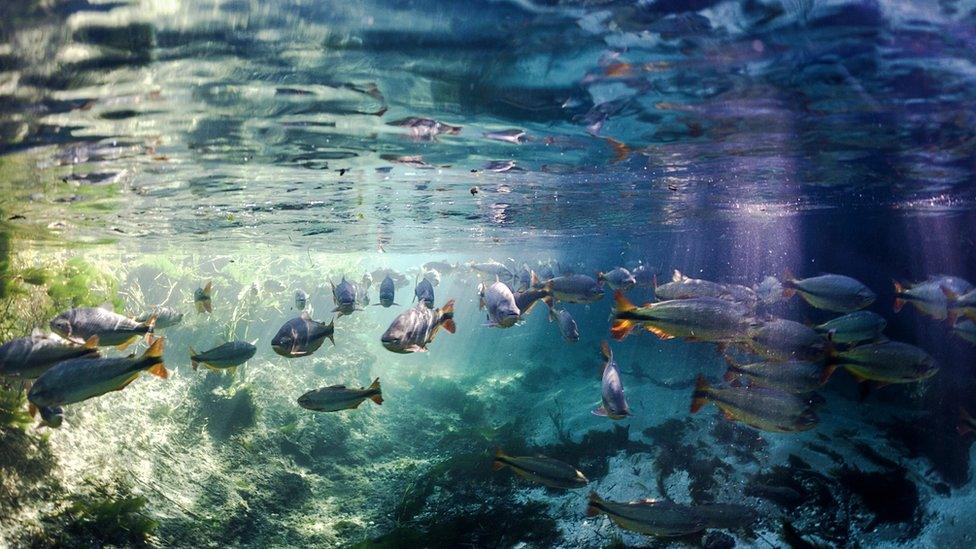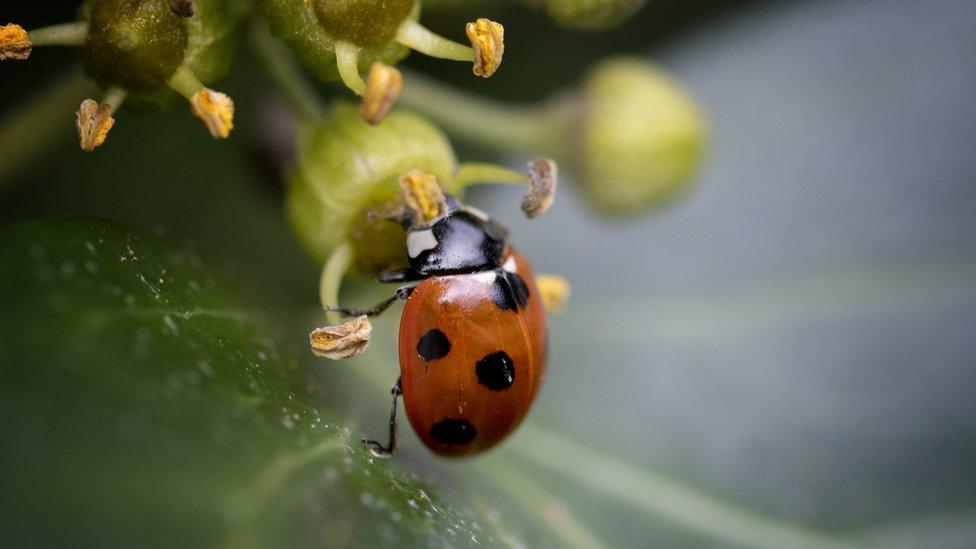COP15: Nations reach 'historic' deal to protect nature
- Published
- comments

Nations have agreed to protect a third of the planet for nature by 2030 in a landmark deal aimed at safeguarding biodiversity.
There will also be targets for protecting vital ecosystems such as rainforests and wetlands and the rights of indigenous peoples.
The agreement at the COP15 UN biodiversity summit in Montreal, Canada, came early on Monday morning.
The summit had been moved from China and postponed due to Covid.
China, which was in charge of the meeting, brought down the gavel on the deal despite a last minute objection from the Democratic Republic of Congo.
UN Secretary General Antonio Guterres hailed the deal and said: "We are finally starting to forge a peace pact with nature."
The main points include:
Maintaining, enhancing and restoring ecosystems, including halting species extinction and maintaining genetic diversity
"Sustainable use" of biodiversity - essentially ensuring that species and habitats can provide the services they provide for humanity, such as food and clean water
Ensuring that the benefits of resources from nature, like medicines that come from plants, are shared fairly and equally and that indigenous peoples' rights are protected
Paying for and putting resources into biodiversity: Ensuring that money and conservation efforts get to where they are needed.
"It is truly a moment that will mark history as Paris did for climate," Canada's Minister for the Environment and Climate Change Steven Guilbeault told reporters. The Paris climate deal saw nations agreeing in 2015 to keep world temperature rise below 2C.
The summit in Montreal had been regarded as a "last chance" to put nature on a path to recovery. Throughout the talks there was division over the strength of ambition and how to finance the plans.
One big sticking point was over how to fund conservation efforts in the parts of the globe that harbour some of the world's most outstanding biodiversity.
Biodiversity refers to all the Earth's living things and the way they are connected in a complex web of life that sustains the planet.

Biodiversity includes all living things, big and small, and the way they fit together in a web of life
A new text of the agreement was released by China on Sunday.
Delegates convened a full session of the summit early on Monday morning after hours of delays, but then agreed to the text quickly.
The president of COP 15, Minister Huang Runqui, declared the deal approved despite objections from the Democratic Republic of Congo, which said it couldn't back the deal.
Georgina Chandler, senior international policy advisor for the Royal Society for the Protection of Birds said people and nature should both be better off thanks to the deal struck in Montreal.
"Now it's done, governments, companies and communities need to figure out how they'll help make these commitments a reality."
Sue Lieberman of the Wildlife Conservation Society said the agreement was a compromise, and although it had several good and hard-fought elements, it could have gone further "to truly transform our relationship with nature and stop our destruction of ecosystems, habitats and species".
The agreement follows days of intense negotiations. On Saturday, ministers made impassioned speeches about the need to agree on clear goals to put nature on a path to recovery by the end of the decade.
The UN Development Programme said the "historic agreement" meant people around the world could hope for real progress to halt biodiversity loss.
Scientists have warned that with forests and grasslands being lost at unprecedented rates and oceans under pressure from pollution, humans are pushing the Earth beyond safe limits.
This includes increasing the risk of diseases, like SARs CoV-2, Ebola and HIV, spilling over from wild animals into human populations.
A key sticking point has been finance. In echoes of the climate summit, COP 27, in Egypt, some countries have been calling for a new fund to be set up to help preserve biodiversity, but this was rejected by others.
Follow Helen on Twitter @hbriggs.